Hope for Today projects can make the difference between life and death. They help meet immediate physical needs for an individual or a community by providing things like access to clean water, medical care, or food. These projects aid in survival for the most vulnerable and also inspire Hope.
Food
A family living in extreme poverty may not have enough food to eat. And, what they do have available, may not be nutritionally balanced. The ramifications of that are many, and it kicks off a heartbreaking chain of events.
- If a child doesn’t get enough food, it could stunt their growth physically and cognitively.
- A hungry child cannot stay focused in school. If they don’t do well in school, they’re likely to have a harder time breaking free from poverty when they’re older.
- Even if they want to go to school, many children are forced to search for food outside their homes, or even work for food, causing them to drop out of school. Sadly, some end up living on the streets.
By providing a meal before school starts, during the lunch hour, or at an after-school program, we see grades and test scores rise and children staying in school.
And, while providing relief aid is not a primary focus of ours, when disaster strikes communities where we are invested, sometimes we distribute food supplies to help ease the burden in a time of crisis.
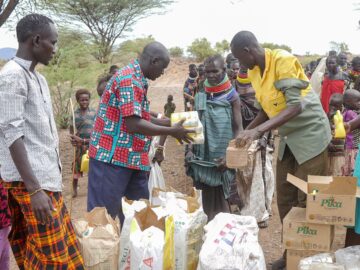
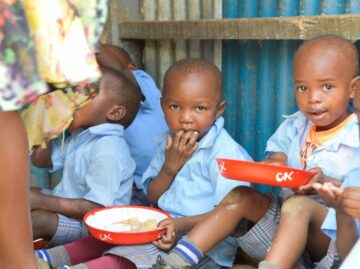
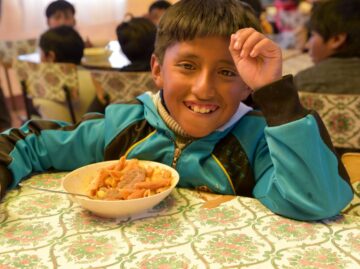
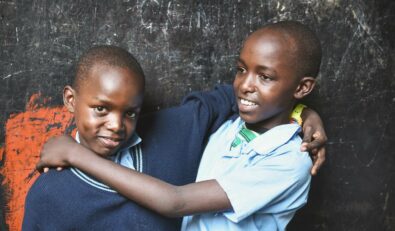
—Noah, 14-year-old student living in a Kenyan slum
Our work

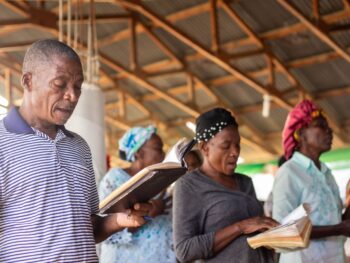
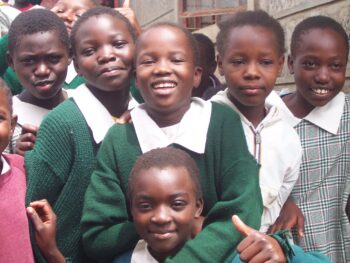
WASH
(Water, Sanitation and Hygiene)
Without water, there is no life. Without clean water, there is often death. Contaminated drinking water is thought to cause 485,000 diarrheal deaths each year, through diseases like diarrhea, cholera, dysentery, typhoid and polio (WHO).
Poor sanitation and hygiene for those living in extreme poverty can compound the problem as it can lead to increased rates of infections and diseases. A staggering number of children under 5 die every year from diarrheal diseases. This should not be.
We tackle this from two angles: providing clean water solutions, and offering training and practical help with hygiene and sanitation. Some ways we do this:
- dig and repair wells
- clean and protect natural water sources
- install water storage and purification systems
- piping in clean water
- build latrines and handwashing stations
- conduct hygiene and sanitation trainings that offer practical tips and solutions
These interventions equip the church and community with knowledge and skills to follow safe hygiene and sanitation practices, which leads to better health. We also encourage the community members to share what they learn with neighboring communities to impact the community at large.
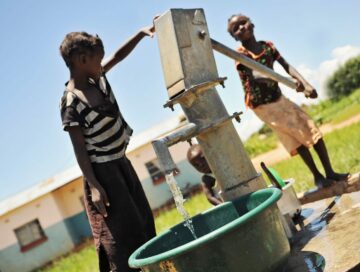
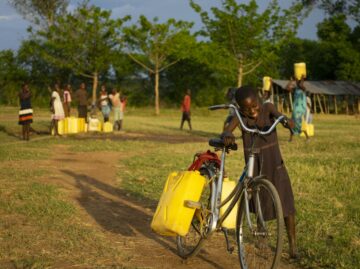
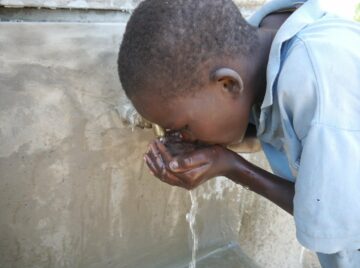
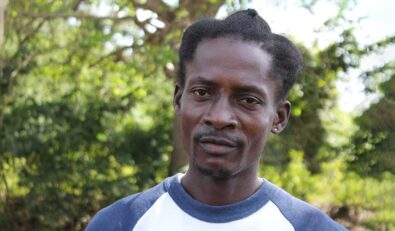
—Voltaire, Haiti resident
Our work



Medical
People living in extreme poverty often do not get the medical care they need. The reasons are many. It could be cost. It could be distance—a clinic or hospital is too far away. Or it could be cultural beliefs or fears that make people unwilling to seek professional medical help, even if it is available.
Bright Hope’s medical programs vary depending on the needs of a community, but oftentimes take the forms of:
- outreach medical campaigns (hosting “pop-up clinics” with teams of U.S. and/or local medical professionals providing free medical care)
- providing deworming treatments for students
- providing pharmaceuticals to clinics, hospitals and medical campaigns
- offering nutrition training for children and adults
- working with clinics in Uganda and Zambia to promote maternal health, encourage prenatal care, and provide pregnant women with hygienic supplies needed to have a safe delivery.
These programs not only provide people with the treatment they need, but it also helps build relationships between community members and local health care providers for long-term support.
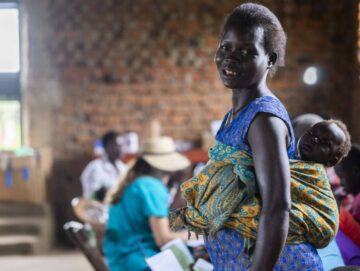
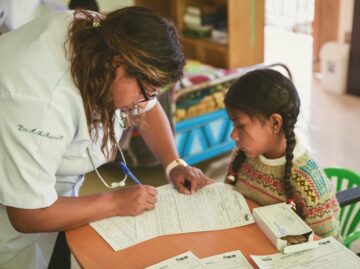
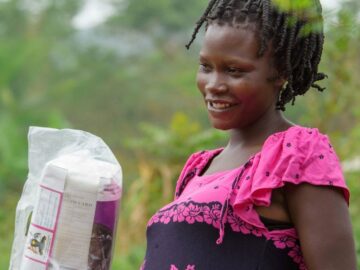
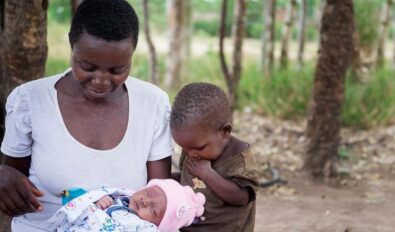
—Fahima, Mama Kit recipient
Our work



Orphans and Vulnerable Children
(Family Empowerment)
If even one child is neglected, hungry, alone, in danger, living on the streets or in an unsafe environment, it’s one too many. Sadly, we know there are tens of millions of children living in these circumstances.
And we have found that quality of life and family dynamics are major factors contributing to either the prevention or cause of new orphaned and vulnerable children.
So, what do we do? We work with our partner churches to invest in families. In some cultures, no affection, little communication and harsh physical treatment is the norm, but we can teach a different way of parenting and relating in marriage. Trainees have told us afterward that they’d just didn’t know any other way before...
We teach, from a biblical perspective, on the role of a father and a husband, we help families better provide for themselves through agricultural aid and poultry and livestock breeding opportunities.
We encourage families and churches to take on the responsibility of caring for the orphaned and vulnerable in their communities.
Here are some ways we accomplish this:
- parenting workshops
- marriage workshops
- fathers’ clubs
- grandmothers’ clubs
- child advocacy training
- peer mentorship programs
All these efforts strengthen families and mend relationships. By doing this and teaching church leaders and the community how to advocate for the vulnerable, we can address the issues affecting vulnerable children and help children stay in families.
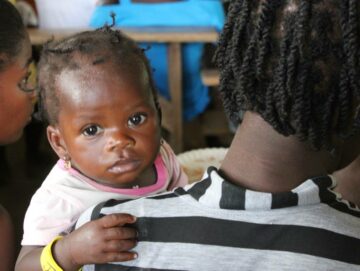
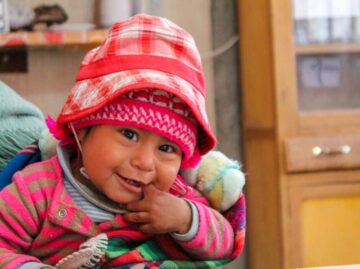
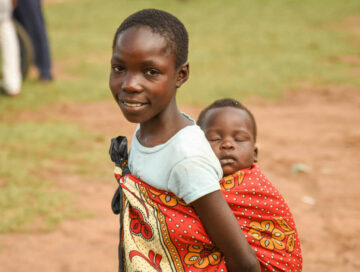
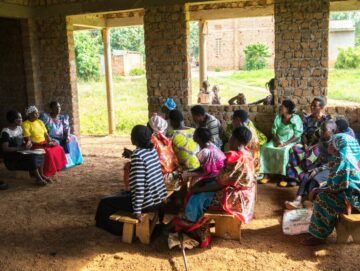
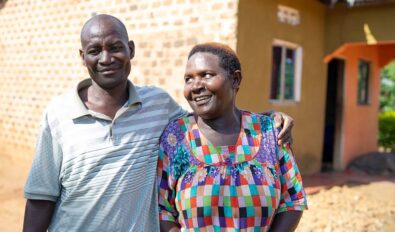
—Martin, parenting trainee; father of 6 children and 3 orphans
Our work



Stories of Hope and Transformation
